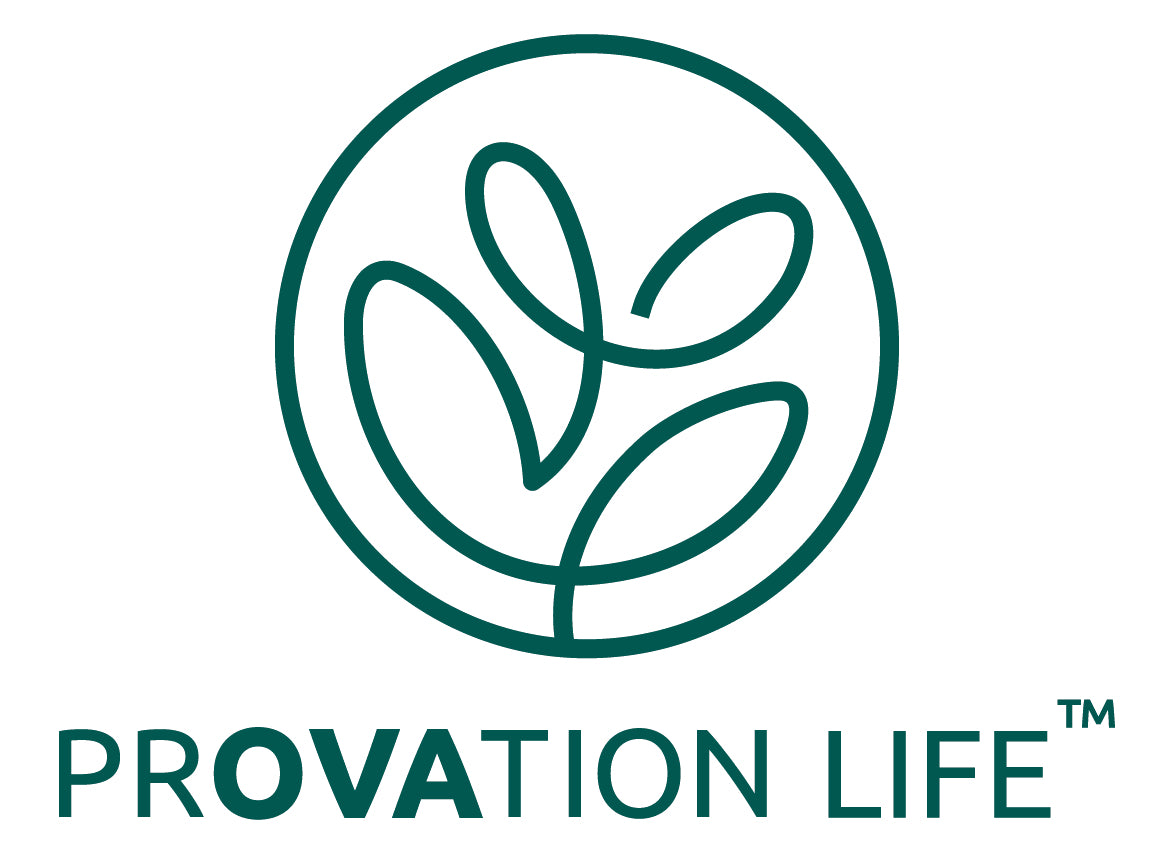PCOS and the Mind-Body Connection: Can Healing the Mind Support Your Fertility Journey?
by Herman Weiss on Sep 25, 2024
Polycystic Ovary Syndrome (PCOS) is one of the most common hormonal disorders affecting women of reproductive age. It often comes with symptoms like irregular periods, weight gain, and fertility challenges. While medical interventions such as medications, lifestyle changes, and supplements are frequently discussed, there's a growing interest in understanding the potential mind-body connection in managing PCOS.
But what does that mean? Can healing your mind also help your body, especially when dealing with a complex condition like PCOS? Let's explore the science behind the mind-body connection and its potential impact on women with PCOS.
The Stress-Fertility Loop in PCOS
It’s well-known that stress can exacerbate PCOS symptoms. Elevated levels of stress hormones, such as cortisol, can interfere with insulin levels and worsen hormone imbalances. Women with PCOS may find themselves in a vicious cycle—stress worsens PCOS symptoms, and in turn, the challenges of managing the symptoms add to stress.
But here's the important part: reducing stress has the potential to break this cycle. Research has shown that practices such as meditation, yoga, and mindfulness can lower cortisol levels and improve insulin sensitivity. These improvements in stress management can also support regular menstrual cycles, making it easier for women with PCOS to conceive naturally.

The Role of the Mind in Hormonal Regulation
The mind-body connection is not just about reducing stress—there’s deeper evidence suggesting that the way we think and feel can influence our hormone regulation. For example, the hypothalamus-pituitary-adrenal (HPA) axis, which controls many of our stress responses, also plays a key role in regulating reproductive hormones. When the HPA axis is over-activated due to chronic stress, the delicate balance of hormones needed for ovulation and fertility can be disrupted.
By practicing techniques that calm the mind—like deep breathing exercises, meditation, or progressive muscle relaxation—women can send signals to the brain to regulate this hormonal cascade. Over time, this can have a positive effect on the hormonal imbalances seen in PCOS.
Healing Through Mindfulness and Meditation
Mindfulness and meditation are increasingly being recognized as powerful tools to manage the emotional and physical symptoms of PCOS. A 2019 study showed that women who practiced mindfulness-based stress reduction (MBSR) experienced lower levels of anxiety and depression, improved sleep, and even regulated their menstrual cycles more effectively than those who didn’t.
One reason mindfulness can be so impactful is that it teaches women with PCOS to focus on the present moment without judgment, reducing feelings of frustration and helplessness that often accompany fertility struggles. By acknowledging their emotions without becoming overwhelmed by them, women can feel more in control of their journey, both physically and mentally.
Yoga: The Balance of Body and Mind
Yoga is often recommended for women with PCOS, not just for its physical benefits but also for its mind-calming effects. Several studies have linked yoga to reduced levels of testosterone in women with PCOS, which is significant since high testosterone levels often contribute to symptoms like irregular periods, acne, and infertility.
Furthermore, yoga poses that focus on deep stretching and relaxation, such as restorative yoga or yin yoga, can promote blood flow to the reproductive organs. This helps regulate hormone production and encourages ovulation. The meditative aspects of yoga also help manage stress and boost emotional well-being, further supporting a mind-body connection in the management of PCOS.
Gut Health and PCOS: A New Frontier
Another aspect of the mind-body connection that's gaining attention is the relationship between the gut and the brain. Known as the gut-brain axis, this connection suggests that gut health can influence mental health, hormonal balance, and immune responses.
For women with PCOS, improving gut health through diet, probiotics, and anti-inflammatory foods may not only aid in managing physical symptoms like bloating or insulin resistance but can also improve mood and reduce stress. An improved gut environment helps to regulate serotonin, a neurotransmitter that plays a significant role in mood and anxiety, which can, in turn, support mental resilience and hormonal balance.
The Psychological Toll of PCOS and the Importance of Mental Health
It's essential not to overlook the emotional challenges that come with a PCOS diagnosis, particularly for those struggling with fertility. Feelings of frustration, hopelessness, and even guilt can weigh heavily on women, making it harder to manage symptoms and stay positive during treatments.
Working with mental health professionals, especially those familiar with PCOS, can provide an outlet for women to express their fears and anxieties. Cognitive-behavioral therapy (CBT) has been shown to help women with PCOS manage their emotions, improve body image, and boost self-esteem.
Nurturing the Mind to Heal the Body
The science behind the mind-body connection shows us that stress, hormones, and emotional well-being are deeply intertwined, especially for women with PCOS. By incorporating mind-calming techniques such as meditation, mindfulness, and yoga into daily routines, women can actively reduce stress, improve hormone regulation, and support their fertility journey.
Though medical treatments are often necessary, healing the mind is a powerful tool that should not be overlooked. Embracing a holistic approach that integrates both physical and mental health could be the key to managing PCOS and improving overall well-being.
Citations:
Stefanaki C, Bacopoulou F, Livadas S, Kandaraki A, Karachalios A, Chrousos GP, Diamanti-Kandarakis E. Impact of a mindfulness stress management program on stress, anxiety, depression and quality of life in women with polycystic ovary syndrome: a randomized controlled trial. Stress. 2015 Jan;18(1):57-66. doi: 10.3109/10253890.2014.974030. Epub 2014 Dec 29. PMID: 25287137.
Hewawasam E, Brennan L, Giles L, Hull ML, Short A, Norman R, Peña AS. Assessing Whether Meditation Improves Quality of Life for Adolescent Girls With Polycystic Ovary Syndrome: Protocol for a Randomized Controlled Trial. JMIR Res Protoc. 2020 Jan 28;9(1):e14542. doi: 10.2196/14542. PMID: 32012099; PMCID: PMC7013635.
Benjamin JJ, Kuppusamy M, Koshy T, Kalburgi Narayana M, Ramaswamy P. Cortisol and polycystic ovarian syndrome - a systematic search and meta-analysis of case-control studies. Gynecol Endocrinol. 2021 Nov;37(11):961-967. doi: 10.1080/09513590.2021.1908254. Epub 2021 Apr 5. PMID: 33818258.











